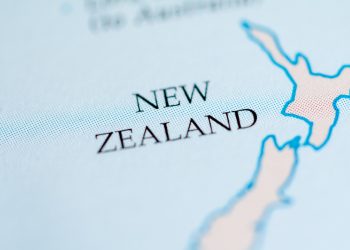This is on Designating Parties-In-Interest in Marine Casualty Investigations
On January 25, 2010, the U.S. Coast Guard Commandants Office issued CG-545 Policy Letter 3-10, which was intended to clarify the Coast Guards procedure regarding the designation of Parties-in-Interest in marine casualty investigations. This result was the culmination of a lengthy appeals process spearheaded by Legge Farrow attorneys. The primary issue that the Coast Guards new policy addresses is when and how parties may participate in Coast Guard investigations, and what materials they may have a right to receive and/or review. Following 9/11, the Coast Guard implemented a number of bureaucratic policies which were designed to protect information collected during marine safety investigations. Often, persons meeting the definition of a Party-in-Interest were denied that status by the Coast Guard who asserted that it was only conducting an informal investigation. Surprisingly, the COSCO BUSAN was also deemed an informal marine casualty investigation. Under this policy companies and individuals who were part of investigations were foreclosed from even reviewing evidence the Coast Guard was collecting, and were unable to be present at witness interviews to cross-examine witnesses. The Coast Guard often took the position that when it labeled an investigation informal, mariners or other affected parties would be unable to participate as Parties-in-Interest. Additionally, because there was an ongoing marine casualty investigation, albeit an informal one, the Coast Guard was able to ignore requests for information under the Freedom of Information Act. It is important to note that there is no authority for the U.S. Coast Guard to conduct informal investigations either in the U.S. Code or the Code of Federal Regulations.
The guidelines for when the Coast Guard must designate a Party-in-Interest are set forth in Section 6303 of Title 46 of the U.S. Code and Section 4.03-10 of Title 46 of the Code of Federal Regulations and grant Party-in-Interest standing to: owners, agents of owners, or charterers of vessels involved in marine casualties, individual holders of merchant mariners documents whose conduct is under investigation by a Marine Board of Investigation or Coast Guard Investigating Officer, and anyone else whose conduct is under investigation or who is found by the Board or Investigating Officer to have a direct interest in the investigation. A Party-in-Interest has the right to retain counsel, obtain certain factual materials gathered by the Coast Guard concerning the investigation, and cross-examine witnesses who are interviewed by the Board or Investigating Officer in connection with the Coast Guards investigation into the casualty.
Policy Letter 3-10 has changed the Coast Guards previous informal informal practice. Now when conducting a marine casualty investigation, the Coast Guard Investigating Officer must designate as Party-in-Interest all entities or individuals who fall within the statutory criteria regardless of the type of investigation being conducted. To trigger the designation, the Party-in-Interest must request that the Investigating Officer or Board issue a Party-in-Interest designation. The request can be verbal or in writing, but as a practical matter Parties-in-Interest should make the request both verbally and in writing to ensure their appealable rights are preserved. From the time the Investigating Officer or Board receives the Party-in-Interests written request for designation, the new policy mandates that the Coast Guard has five (5) business days to issue a letter granting the Party-in-Interest designation.
Policy Letter 3-10 also sets forth specific rules for informal Coast Guard investigations into marine casualties. These new guidelines specifically address witness interviews. Once the Coast Guard has designated an individual or entity as a Party-in-Interest, the Investigating Officer or Board must notify the Party-in-Interest prior to conducting any witness interviews. Witness interviews, however, do not have to be scheduled to accommodate the Party-in-Interests schedule. Policy Letter 3-10 reiterated that the Investigating Officer has the authority to control the interview and allows Investigating Officers to interject and disallow any questions asked by the Party-in-Interest or the Party-in-Interests legal counsel that the Investigating Officer deems inappropriate. The policy does not offer guidelines as to the type of questions which are appropriate for Parties-in-Interest to ask other than that the questions must be relevant to the investigation.
One of the more troubling issues in the Policy Letter 3-10 is the Coast Guards position that the rights of a Party-in-Interest apply only to conducting witness interviews, but the Investigating Officer may allow a Party-in-Interest to review any or all of the evidence the Coast Guard has gathered during the fact-finding portion of its investigation. It can be reasonably argued that CG-545 Policy Letter 3-10 contemplates that Parties-In-Interest have not only the right to cross-examine witnesses, but also the right to access certain documents and other information gathered by the Coast Guard as part of a marine casualty investigation. While the U.S. Code is silent on whether access to documents is within a Party-In-Interests enumerated rights, the grant of a right to cross-examine witnesses implies that the Coast Guard must grant the Party-In-Interest access to factual documents in order to provide and allow for a full and frank cross-examination. Further, the release of third-party evidence such as log books, photos, and witness statements, does not disclose the opinions, thought processes, and work-product of the Coast Guard and accordingly simply does not interfere with the Coast Guards mandate to investigate and make recommendations.
It remains to be seen how the new Policy will be followed by Investigating Officers at the district level; however, the Coast Guards new policy provides a suitable mechanism for legitimate Parties-in-Interest to take part in Marine Investigations, where they were simply ignored before.
Source:Alexander C. Papandreou, Partner – LEGGE, FARROW, KIMMITT, McGRATH & BROWN, L.L.P.





























































